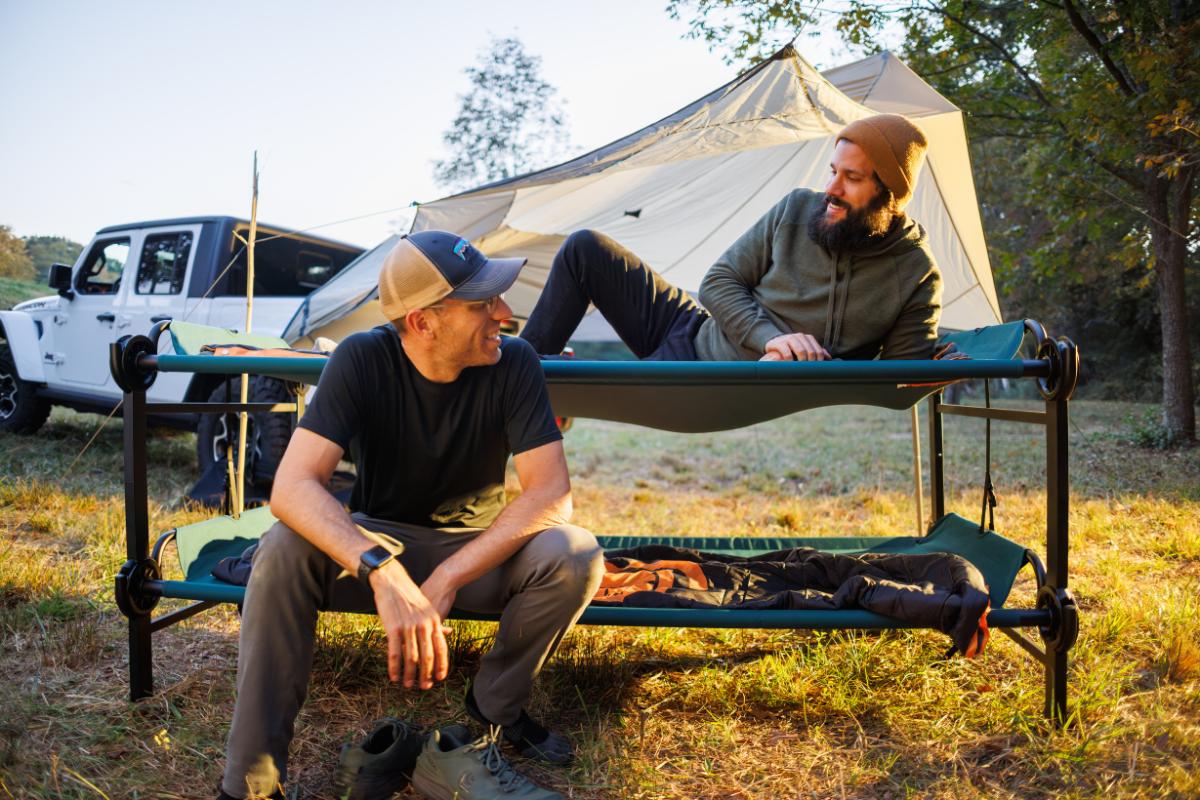The allure of the great outdoors often clashes with the desire for a comfortable night’s sleep. This is where the concept of camping with a folding bed enters the equation, promising a compromise between rustic adventure and modern convenience. But is lugging a folding bed into the wilderness truly a worthwhile endeavor? Exploring the benefits and drawbacks of camping with a folding bed is crucial before making a decision that could significantly impact your camping experience. This article will delve into the advantages and disadvantages, helping you determine if this sleep solution is right for your next outdoor adventure.
The Alluring Advantages of Folding Beds for Camping
Imagine waking up refreshed after a night under the stars, free from the aches and pains of sleeping on uneven ground. This is the primary appeal of using a folding bed while camping. Let’s explore some other key benefits:
- Enhanced Comfort: Sleeping on a raised, flat surface provides superior comfort compared to sleeping directly on the ground, even with a sleeping pad. This can be particularly beneficial for individuals with back problems or other physical limitations.
- Improved Insulation: Elevating yourself off the ground reduces heat loss to the cold earth, keeping you warmer during chilly nights.
- Protection from Critters: While not foolproof, a folding bed provides a slight barrier against insects and small animals that might otherwise crawl into your sleeping bag.
- Convenient Storage: Some folding beds offer built-in storage pockets or space underneath, allowing you to keep your gear organized and off the ground.
The Downsides: Weight, Space, and Practicality
While the comfort factor is undeniable, there are several drawbacks to consider before packing a folding bed for your next camping trip. The most significant issues revolve around portability and practicality.
Weight and Bulk
Folding beds are typically heavier and bulkier than traditional camping sleep systems like sleeping pads and hammocks. This can be a major concern if you’re backpacking or hiking to your campsite. Consider the following:
- Transportation Challenges: Carrying a heavy folding bed can be physically demanding, especially over long distances or uneven terrain.
- Vehicle Space Constraints: Folding beds take up significant space in your vehicle, potentially limiting the amount of other gear you can bring.
Setup and Durability
Setting up a folding bed can be more time-consuming and complicated than simply unrolling a sleeping pad. Furthermore, the durability of some folding beds can be questionable, especially in harsh outdoor conditions.
Cost Considerations
Folding beds designed for camping can be more expensive than other sleep system options. You need to weigh the cost against the potential benefits and your budget.
Choosing the Right Folding Bed for Camping
If you decide that a folding bed is right for you, research is key. Look for models specifically designed for camping, prioritizing lightweight materials, compact folding designs, and durable construction. Consider the weight capacity and ensure it meets your needs. Read reviews and compare different brands before making a purchase.
FAQ: Camping with Folding Beds
Here are some frequently asked questions about using folding beds for camping:
- Q: Are folding beds suitable for backpacking? A: Generally, no. Their weight and bulk make them impractical for backpacking.
- Q: What type of folding bed is best for camping? A: Look for lightweight, durable models designed specifically for outdoor use.
- Q: Can I use a regular folding bed for camping? A: While possible, camping-specific models are usually more durable and weather-resistant.
- Q: Do I still need a sleeping pad with a folding bed? A: A sleeping pad can add extra insulation and comfort, especially in cold weather.
Ultimately, the decision of whether or not to bring a folding bed camping depends on your individual needs and priorities. If comfort is paramount and weight is not a major concern, then a folding bed can significantly enhance your camping experience. However, if you’re backpacking or prefer a more minimalist approach, a traditional sleeping pad or hammock might be a better choice. Remember to carefully weigh the pros and cons before making your decision, as your comfort and enjoyment of the outdoors are the most important factors. To truly enjoy your time outside, consider the environment and practice Leave No Trace principles. The final paragraph should summarize this article and re-emphasize the importance of considering all factors before deciding whether or not camping with a folding bed is right for you.

